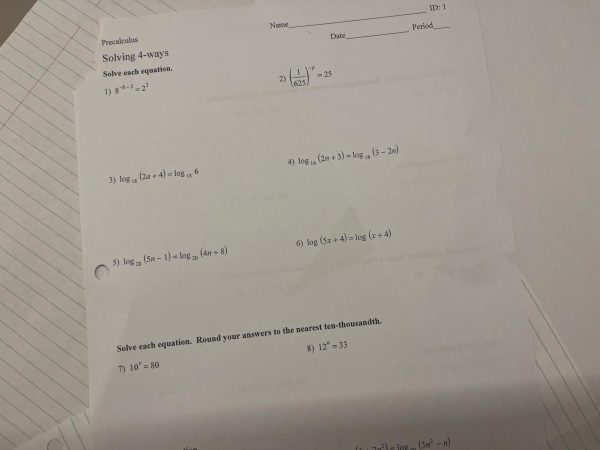Class Rank: Let’s Weigh its Value
Students are often reminded of their academic standings such as grades, GPA, and class ranking. This almost daily reminder has put a number on our academic intelligence and ability to score well on a test and complete assignments. Students find themselves being compared to or comparing themselves to others, as we know it’s almost unavoidable. But what we have failed to consider is whether or not a ranking is truly valuable for students.

A class ranking system is used to rank students based on their GPA. This implementation may seem like a great way to encourage academic competition, but at what point does a friendly competition become a rivalry? A study was conducted by Mohammad Aryana where students were given a self-esteem questionnaire and sent in their grades. According to his journal on the Relationship Between Self-esteem and Academic Achievement, there was a “positive relationship between self-esteem and academic achievement”. Students wanting a high ranking are more inclined to take higher-level courses to increase their GPA. Because of the innate competition that comes with ranking students, students are taking rigorous classes to raise their rankings and increase their chances of getting into a good college. The top percentage of students find themselves competing with others at the top, while the bottom percentage feel inadequate to even try at all.
Many schools have gotten rid of rankings altogether because it often penalizes students who just miss the top ten percent, which elite colleges often looked for in a transcript. Colleges have started to discount the class rankings as many admissions boards have realized it should not be weighted as significantly as one’s personal essay or extracurriculars.
The class ranking system no longer seems relevant as it has been deemed unnecessary. As we begin to phase out the use of class rankings, schools should keep a student’s class rank confidential between the guidance counselor and a college that wishes to still consider a class ranking. The competitiveness that inevitably comes from ranking students is not valuable to a student body where its easy access is no doubt to be compared with others. Instead of breeding a community where students compete to be the most academically intelligent, schools should be encouraging students to challenge themselves to learn what interests them.
Odi Dibor. Grade 12. Interests/hobbies include Executive Council, Red Cross Club, Mini-THON, Key Club, National Honors Society, playing tennis, traveling,...




